SIXTH DAY WITHIN THE OCTAVE OF THE NATIVITY
This is the only day, within the Christmas Octave, which is not a Saint’s Feast. During the Octaves of the Epiphany, Easter, and Pentecost, the Church is so absorbed in the respective mysteries, that she puts off everything that could share her attention; whereas, during this of Christmas, there is only one day which does not celebrate the memory of some glorious Saint, and our Infant Jesus is surrounded by a choir of heroes who loved and served him. Thus, the Church, or, more correctly, God for God is the first author of the Cycle of the Year shows us how the Incarnate Word, who came to save mankind, desires to give mankind confidence by this his adorable familiarity. We have already shown that the Birth of our Lord took place on a Sunday, the Day on which, in the beginning of the world, God created Light. We shall find, later on, that his Resurrection, also, was on a Sunday. This the first day of creation, and the first of the week, was consecrated, by the old Pagans, to the Sun: with us Christians, it is most sacred and holy, on account of the two risings of our divine Sun of Justice his Birth and his Resurrection. Whilst the solemnity of Easter is always kept on a Sunday, that of Christmas falls, by turns, on each of the days of the week we have already had this difference explained to us by the Holy Fathers: but, the mystery of Jesus’ Birth is more aptly and strongly expressed, when its anniversary falls on a Sunday. Other years, when the coincidence does not happen, the Faithful will, at least, be led by their Christian instincts, to give especial honour to the Day, within the Octave, which falls on the Sunday.
MASS
It was at Midnight, that the Lord delivered his people from bondage, by the Passage of his destroying Angel over the land of the Egyptians : so, also, was it in the still hour of midnight, that Jesus, the Angel of the Great Counsel, came down from his royal throne, bringing mercy to our earth. It is just, that whilst commemorating this second Passage, the Church should sing the praises of her Emmanuel, who comes, clad in his strength and beauty, to take possession of his Kingdom.
The Child that is born of Mary and is couched in the Crib at Bethlehem, raises his feeble voice to the Eternal Father, and calls him, My Father! He turns towards us, and calls us, My Brethren! We, consequently, when we speak to his Father, may call him, Our Father! This is the mystery of Adoption, revealed to us by the great event we are solemnising. All things are changed, both in heaven and on earth : God has not only one Son, he has many Sons ; hence forth, we stand before this our God, not merely creatures drawn out of nothing by his power, but Children that he fondly loves. Heaven is now, not only the throne of his sovereign Majesty, it is become our in heritance, in which we are joint-heirs with our Brother Jesus, the Son of Mary, Son of Eve, Son of Adam, according to his Human Nature, and (in the unity of Person) Son of God according to his Divine Nature. Let us turn our wondering and loving thoughts, first to this sweet Babe, that has brought us all these blessings, and then to the blessings themselves, to the dear inheritance made ours by Him. Let our mind be seized with astonishment at creatures having such a destiny! And then, let our heart pour out its thanks for the incomprehensible gift!
Gospel reflection
The passage of the Gospel selected for this Mass, though bearing on the Divine Infancy, yet gives us, and we may almost say prematurely, the terrible prophecy of Simeon regarding the dear Babe of Bethlehem. The heart of Mary that was overflowing with joy at the miraculous Birth of her Child is here made to feel the sword spoken of by the venerable Priest of the temple. Her Son, then, is to be but a sign that shall be contradicted! The mystery of man’s being adopted by God is to cost this Child of hers his life! We that are the Redeemed in his Blood, we may not yet dwell on the fatigues and the Passion and the Death of our Emmanuel; the time will come for that; at present, we are for bidden to think of Him other than the sweet Child that is born to us, and the source of all our happiness, by his having come among us. Let us catch up the words of Anna, who calls him the Redemption of Israel. Let our eye delight in the sight of the earth regenerated by the birth of its Saviour. Let us ad mire and study well this Jesus newly born among us, and adore, in humble love, the wisdom and grace that are in him. During the Offertory, the Church celebrates the wonderful renovation wrought in the world, a renovation which saved it from destruction. She sings the praises of the great God who came down into the poor Stable of Bethlehem, yet left not his eternal throne.
On this the sixth day since the Birth of our Emmanuel, let us consider how the Divine Infant lies in the Crib of a Stable, and is warmed by the breath of the Ox and the Ass, as Isaias had foretold: The ox knoweth his owner, and the ass his master’s crib; but Israel hath not known me.1 Thus does the great God enter that world, which his own hands have created! The dwellings of men are refused him, for man has a hard heart for his God, and an indifference which is a real contempt. The only shelter he can find to be born in, is a Stable; and that necessitates his coming into the world in the company of poor dumb brutes.
At all events, these animals are his own work. When he created the irrational world of living things, he subjected it, as the inferior part of creation, to Man; and Man was to ennoble it, by referring it to the Creator. When Adam sinned, this subjection, this harmony, was broken. The Apostle teaches us, that the brute creation is not insensible to the degradation thus forced upon it by sinful Man. It obeys him with reluctance; it not unfrequently rebels against and deservedly punishes him; and on the Day of Judgment, it will take the side of its Creator, and avenge itself of that wickedness, of which Man has made it the unwilling instrument. In the mystery of his Birth, the Son of God visits this part of his creation; men refused to receive him, and he accepts the hospitality of the dwelling of brutes. It is from their dwelling that he begins the divine career of the Three-and-Thirty years. The first human beings he invites into the company of his blessed Mother and his dear St. Joseph, the first he admits into the Stable to see and adore himself, are Shepherds, who were busy watching their flocks, and whose simple hearts have not been corrupted by the atmosphere of cities. The Ox which, as we learn from Ezechiel 3 and St. John, 4 is one of the symbolic creatures standing round God’s throne is the figure of the sacrifices of the Old Law. The blood of oxen has flowed in tor rents upon the altar of the Temple: it was the imperfect and material offering prescribed to be made to God, until he should send the True Victim. The Infant Jesus, who lies in the Crib, is that Victim, and St. Paul tells us what he says to his Eternal Father: Sacrifices, and Oblations, and Holocausts for sin, thou wouldst not have, neither are they pleasing to thee; behold, I come The Prophet Zachary, foretelling the peaceful triumph of the Meek King, says that he will make his entry into Sion riding upon an Ass. We shall assist, further on in the year, at the accomplishment of this prophecy. Now that we are at Bethlehem, in our Christmas mystery, let us observe how the heavenly Father places his Divine Son between the instrument of his peaceful triumph, and the symbol of his Sacrifice on Calvary. Ah! Dear Jesus! Creator of heaven and earth how strange is this thy entrance into thine own world! The whole universe should have given thee a welcome of love and adoration and yet, what motionless indifference! Not one house to take thee in! Men buried in sleep! And when Mary had placed thee in the Crib, thy first sight was that of two poor animals, the slaves of him who proudly rejected thee! Yet, this sight did not displease thee for, thou dost not despise the work of thy hands. What afflicts thy loving Heart, is the presence of sin in our souls, the sight of that enemy of thine, which has so often caused thee to suffer. Oh! Hateful sin! We renounce it, and wish, dear Jesus, to acknowledge thee for our Lord and Master, as did the Ox and the Ass. We will unite in that hymn of praise, which creation is ever sending up to thee, by henceforth adding to it the homage of our adoration and gratitude; nay, we will lend speech to nature, and give it soul, and sanctify it, by referring all creatures to thy service.
The following Prose is the composition of Adam of Saint- Victor, and is one of the most mystical of the sequences in the Missals of the Middle-Ages. It will serve us as a further tribute of praise to the Divine Infant.
He that is the brightness of the Father, and his figure, taking to himself the likeness and nature of man, Gave fruitfulness to the Virgin, who became Mother, not by nature, but by his di vine power. The old Adam is at length made glad, and may sing a new canticle; And he that was a fugitive and captive, may now come before the world. Eve brought forth sadness to mankind ; Mary, the glad Virgin, brought forth the Fruit of Life. Neither did she thereby lose the treasure of virginity.
Hold a dew-wet crystal up to the sun; the spark glitters through, yet breaks not the crystal: so in the Birth of Jesus, it injured naught of the
Mother’s purity. Law and Nature stood wondering at that divine Birth, and reason was confounded. Yea, the Birth of Christ is an ineffable mystery so full of love, and so humble! Aaron’s sapless Branch yields leaf and flower and almond : so does the chaste Virgin her Child, the Son of God. Gedeon’s Fleece bears the dew from heaven; the creature bears the creature’s ransom the Creator. The Leaf and Flower, the Almond and the Dew, are mystic emblems of our Savior’s love. Jesus is the Leaf, that shades us; the sweet Flower, that regales us; the Almond- Nut, that feeds us; the Dew, that waters us with heavenly grace. Why is it, that the Virgin’s Delivery should be a stumbling-block to the Jews? Have they forgotten the dry Branch of Aaron, how it bore the Almonds t Let us once more contemplate the Almond-Nut; for, viewed in its true light, it is the mystic emblem of Him that is the Light. It unites in itself three things, and all three it gives to man : unction, light, and food. Jesus is the Almond-Nut. The rind is the cross and passion he endured in the Flesh: the shell is his Body his Flesh and Bones. The Divinity and the sweet ness of Jesus, which are sheathed within the Flesh, are figured by the kernel. Jesus is Light to the blind, and unction to the sick, and soothing to holy souls. O how sweet a Sacrament! He changes his Flesh that lies as hay in the manger, into the Wheat of the Elect. Give us, O Jesus! Whom thou now feedest with thyself under the Sacramental veils, to be satiated with the sight of thy holy Face in heaven. O Brightness of the Father, co-eternal with him! Take us hence to the joys of thy Father’s glory. Amen.
We borrow from the Syrian Church the following stanzas of one of its Hymns, written by her sublime Poet, St. Ephrem, the Deacon of Edessa.
Hymn
By what name, O Lord Jesus! Shall we call Mary thy Mother? A Virgin? Yet, all eyes are on thee, her Son. Must we call her a Spouse 1 Yet, we know she was not such as men would call a Spouse. And now if thy Mother exceed the mind and understanding of all men; who shall think himself able to reach Thee, O Jesus Mary is thy Mother, if I think of her as she stands alone: if I think of her in what she has in common with other women, she is thy Sister. Yea, she was made thy Mother; and she is, too, thy Sister and thy Spouse, in the company of other holy women. How truly art thou thy Mother’s glory, who hast given her every kind of glory! She was thy Spouse, before thou camest into the world; and when thou didst come, she conceived thee in a supernatural way, and in the same did she give birth to thee, her self remaining a pure Virgin. Mary had the prerogatives of other mothers, without their humiliations. She conceived thee, but was a Virgin; she fed thee at her breasts, but was a Virgin. It was thy bidding, O Jesus! And at once, the purest Virgin was the perfect Mother. She carries thee in her arms, and refreshed with the lovely sight of her Jesus, she feels no weight. She gives thee food, for thou didst will to hunger; she gives thee drink, for thou didst will to thirst. And when she willed to press thee to her heart, thy love did temper down the burning fire of thine infinite perfection, that she might fondle thee and live.
The Liturgical Year – Dom Guéranger O.S.B.
SUNDAY WITHIN THE OCTAVE OF CHRISTMAS, OR THE SIXTH DAY WITHIN THE OCTAVE
Semi-Double / White Vestments
INTROIT – Wisdom 18:14-15
Dum médium siléntium tenérent ómnia, et nox in suo cursu médium iter habéret, omnípotens sermo tuus, Dómine, de cælis a regálibus sédibus venit.
Ps. 92: 1. Dóminus regnávit, decórem indútus est: indútus est Dóminus fortitúdinem, et præcínxit se.
Glória Patri, et Fílio, et Spirítui Sancto. Sicut erat in princípio, et nunc, et semper, et in sæcula sæculórum. Amen.
Dum médium siléntium tenérent ómnia, et nox in suo cursu médium iter habéret, omnípotens sermo tuus, Dómine, de cælis a regálibus sédibus venit.
While all things were in quiet silence, and night was in the midst of her swift course, thine almighty Word, O Lord, leaped down from heaven out of thy royal throne.
Ps. 92: 1. The Lord is King, and hath put on glorious apparel; the Lord hath put on his apparel, and girded himself about.
Glory be to the Father, and to the Son, and to the Holy Ghost. As it was in the beginning, is now, and ever shall be, world without end. Amen.
While all things were in quiet silence, and night was in the midst of her swift course, thine almighty Word, O Lord, leaped down from heaven out of thy royal throne.
COLLECT
Almighty and everlasting God, vouchsafe, we beseech thee, to govern us in all our doings in the way of thy good pleasure: that we, faithfully serving thee in the Name of thy well-beloved Son, may worthily abound in all good works. Who liveth and reigneth with thee, in the unity of the Holy Ghost, ever one God, world without end.
Second Collect of the Octave of Nativity
Grant, we beseech thee, O Almighty God, that the new birth, in the flesh, of thine only-begotten Son, may deliver us whom slavery from of old doth keep under the yoke of sin. Through the same Jesus Christ thy Son our Lord, who liveth and reigneth with thee, in the unity of the Holy Ghost, ever one God, world without end.
EPISTLE – Gal. 4: 1-7
The Lesson is taken from the Epistle of St. Paul to the Galatians.
Brethren: Now I say, that the heir, as long as he is a child, differeth nothing from a servant, though he be lord of all; but is under tutors and governors until the time appointed of the father. Even so we, when we were children, were in bondage under the elements of the world: but when the fullness of the time was come, God sent forth his Son, made of a woman, made under the law, to redeem them that were under the law, that we might receive the adoption of sons. And because ye are sons, God hath sent forth the Spirit of his Son into your hearts, crying, Abba, Father. Wherefore thou art no more a servant, but a son; and if a son, then an heir of God through Christ.
GRADUAL – Ps. 44: 3, 1-2
Thou art beautiful above the sons of men, grace is poured abroad in Thy lips.
My heart hath uttered a good word; I speak my works to the King. My tongue is the pen of a writer: that writeth swiftly.
ALLELUIA – Ps. 92:1
Alleluia, alleluia.
The Lord hath reigned, he is clothed with beauty: the Lord is clothed with strength, and hath girded himself with might. Alleluia.
GOSPEL – Luke 2: 33-40
At that time: Joseph and his mother marvelled at those things which were spoken of him. And Simeon blessed them, and said unto Mary his mother, Behold, this child is set for the fall and rising again of many in Israel; and for a sign which shall be spoken against; (yea, a sword shall pierce through thy own soul also,) that the thoughts of many hearts may be revealed. And there was one Anna, a prophetess, the daughter of Phanuel, of the tribe of Aser: she was of a great age, and had lived with a husband seven years from her virginity; and she was a widow of about fourscore and four years, which departed not from the temple, but served God with fastings and prayers night and day. And she coming in that instant gave thanks likewise unto the Lord, and spake of him to all them that looked for redemption in Jerusalem. And when they had performed all things according to the law of the Lord, they returned into Galilee, to their own city Nazareth. And the child grew, and waxed strong in spirit, filled with wisdom: and the grace of God was upon him.
OFFERTORY – Ps. 92: 2-3
God hath stablished the round world, that it cannot be moved. Thy throne is prepared from of old: thou art from everlasting.
SECRET
Grant, we beseech thee, O almighty God: that these gifts which we offer in the sight of thy divine majesty, may obtain for us grace to serve thee in this life with all godliness, and bring us in the end to everlasting life. Through Jesus Christ thy Son our Lord, who liveth and reigneth with thee, in the unity of the Holy Ghost, ever one God, world without end.
Second Secret Prayer of the Octave of Nativity
We beseech thee, O Lord, that by this new Birth of thine only-begotten Son thou wouldest vouchsafe to sanctify these our obliations: and to cleanse us from the defilement of all our iniquities. Through the same Jesus Christ thy Son our Lord, who liveth and reigneth with thee, in the unity of the Holy Ghost, ever one God…
PREFACE OF THE NATIVITY
It is very meet, right, and our bounden duty, that we should at all times, and in all places give thanks unto thee, O Lord holy, Father almighty, everlasting God. Because by the mystery of the Word made flesh, from thy brightness a new light hath arisen to shine upon the eyes of our souls, in order that, God becoming visible to us, we may be borne upward to the love of things invisible. And therefore with the Angels and Archangels, with the Dominations and the Powers, with all the company of the heavenly throng, we laud and magnify thy glorious Name, evermore praising thee, and saying:
Sanctus, Sanctus, Sanctus, Dóminus Deus Sábaoth. Pleni sunt cæli et terra glória tua. Hosánna in excélsis. Benedíctus qui venit in nómine Dómini. Hosánna in excélsis.
COMMUNION – Matthew 2: 20
Take the young child and his mother, and go into the land of Israel: for they are dead which sought the young child’s life.
POSTCOMMUNION
Grant, O Lord, that by the operation of these thy mysteries, we may be cleansed from all our sins, and obtain that which we have asked according to thy will. Through Jesus Christ thy Son our Lord, who liveth and reigneth with thee, in the unity of the Holy Ghost, ever one God, world without end.
Second Postcommunion of the Octave of Nativity
Grant, we beseech thee, O almighty God: that like as thy Son, born this day the Saviour of the world, hath been made the author of our heavenly birth; so he may bestow upon us the gift of everlasting life. Who liveth and reigneth with thee, in the unity of the Holy Ghost, ever one God, world without end. Amen.

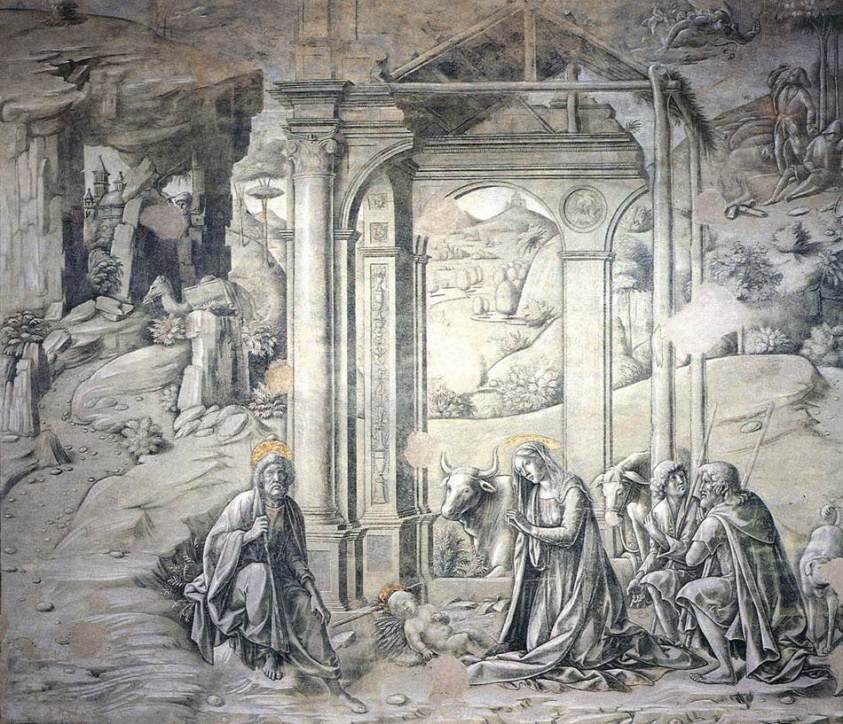
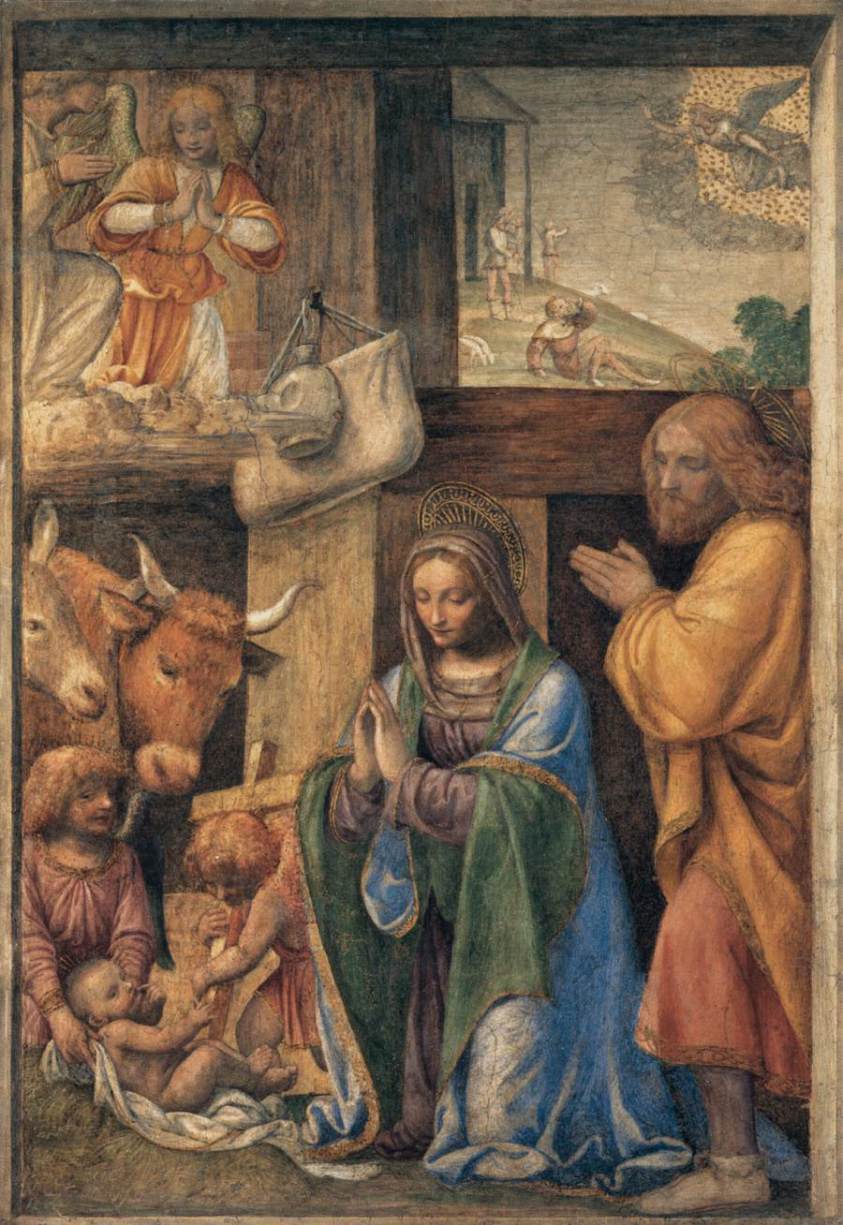
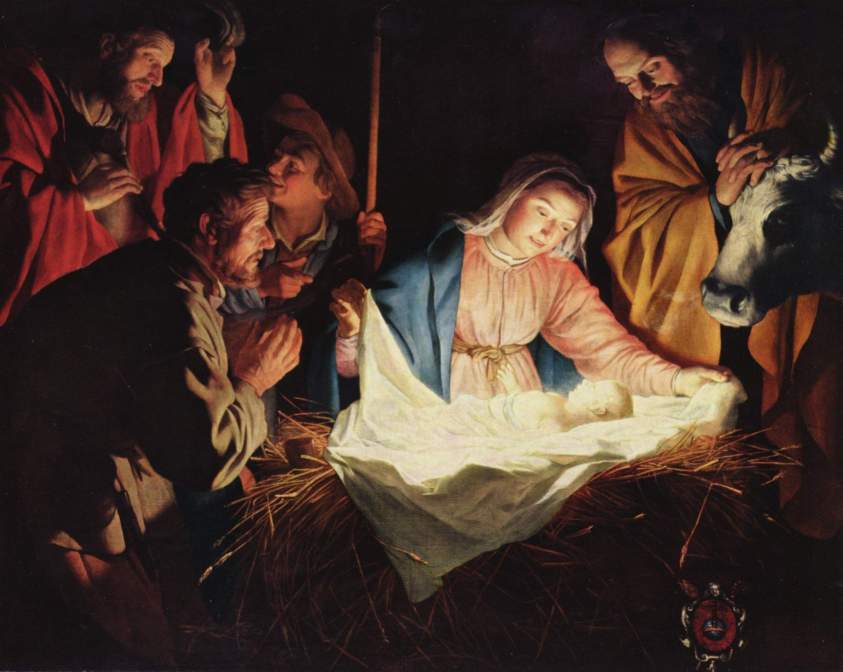
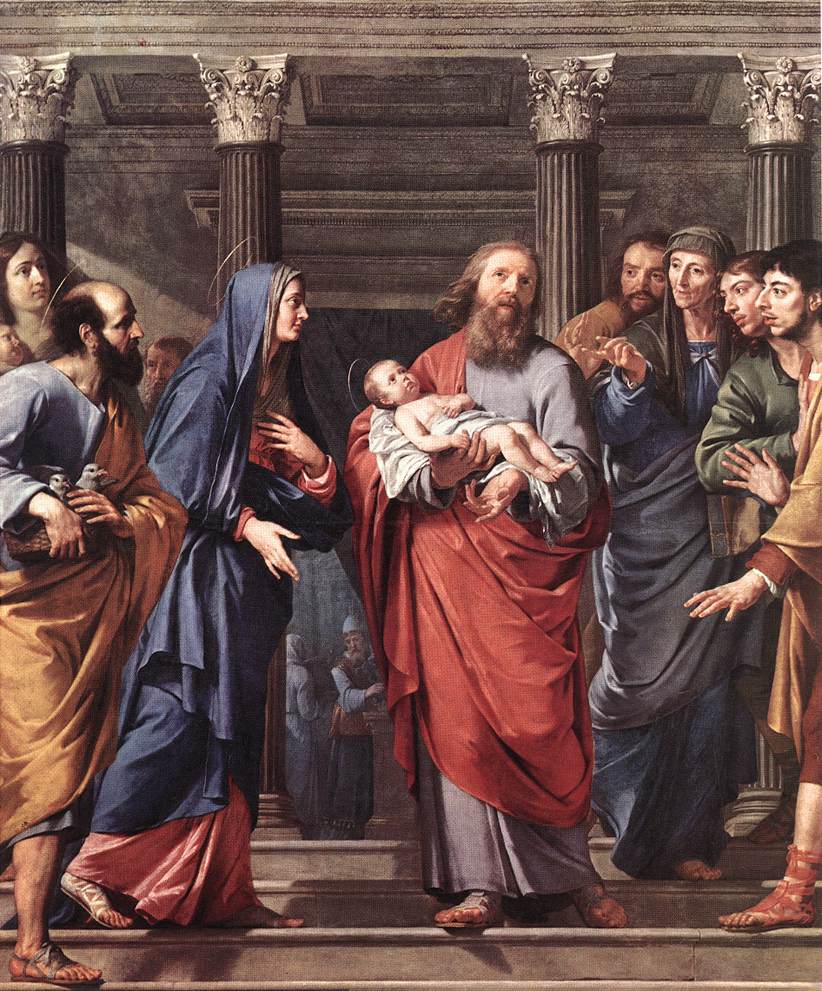
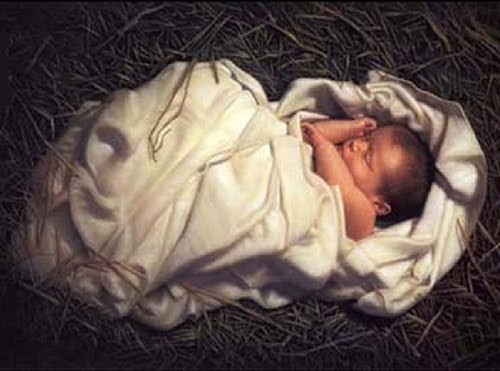
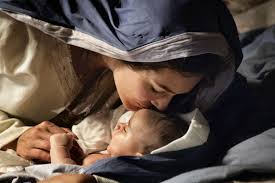
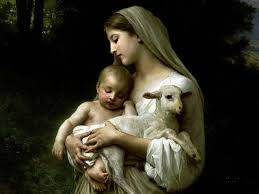
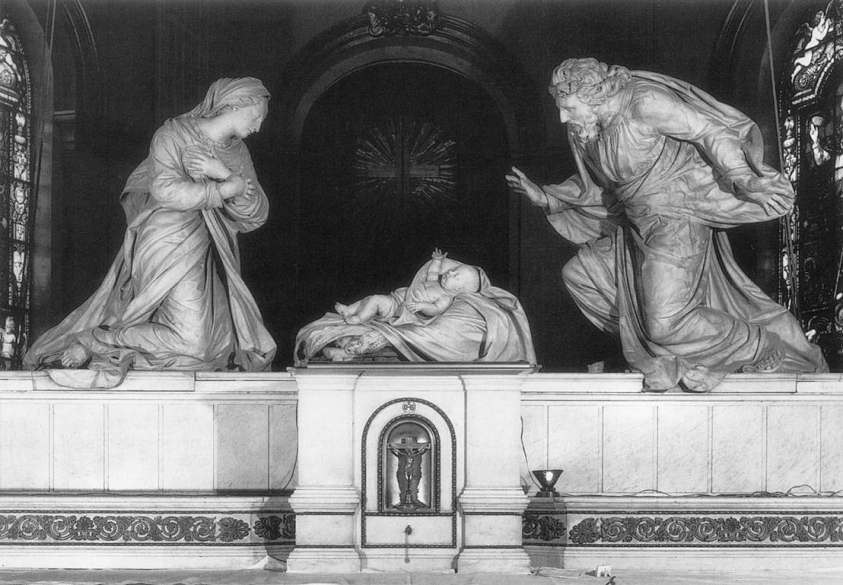
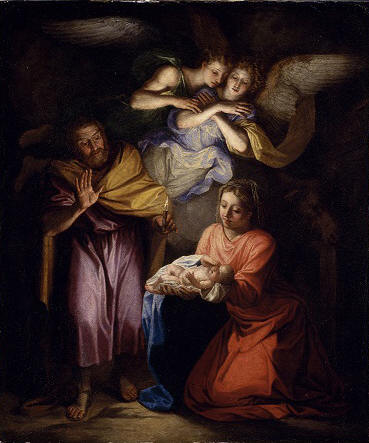
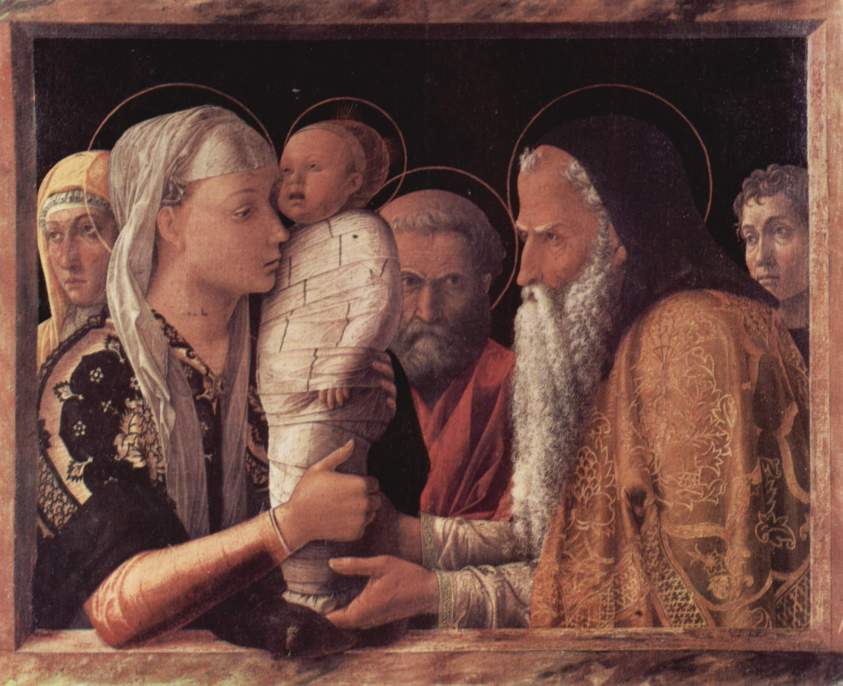
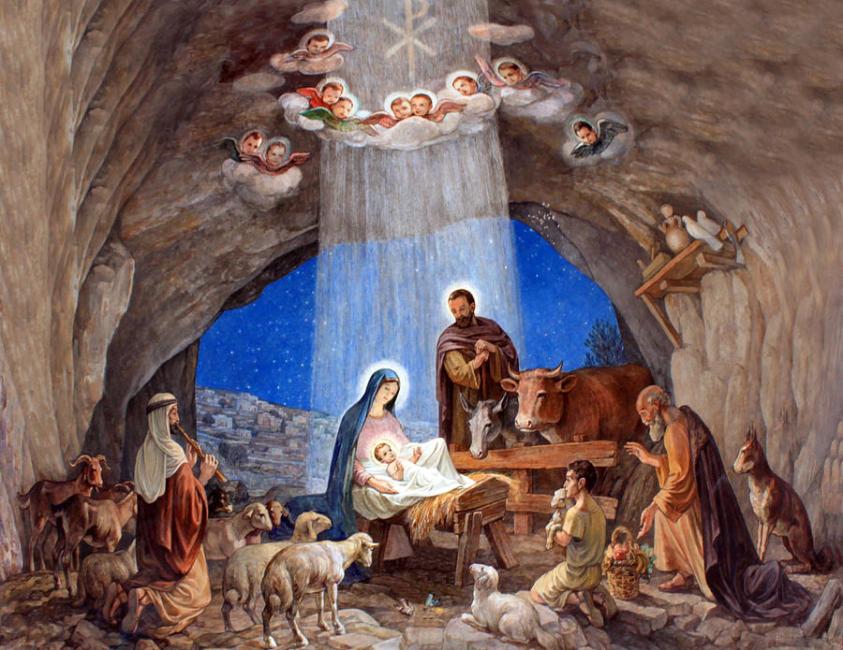
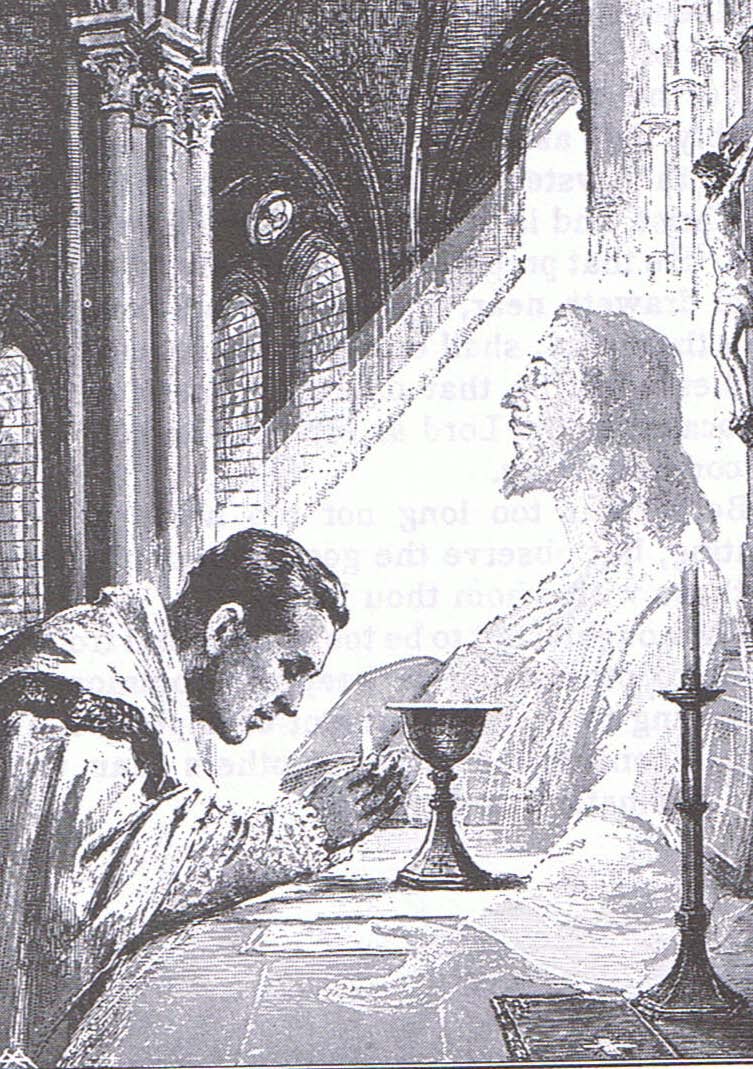
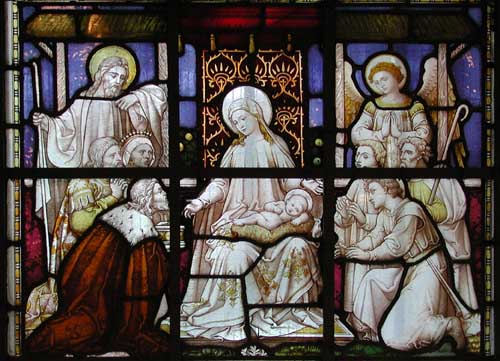
No comments:
Post a Comment